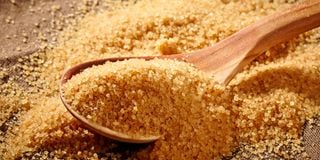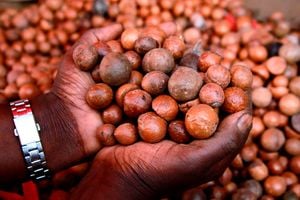
The government has increased excise duty it charges on imported sugar.
An oversupply of sugar in the local market slashed imports of the sweetener by nearly half in the third quarter of 2024, as the country inched close to self-sufficiency.
Data from the Kenya National Bureau of Statistics (KNBS) shows that sugar imports fell from 162,189.1 tonnes in the third quarter of 2023 to 88,372 tonnes in the three months to September last year.
The country also made savings on its foreign exchange reserves, paying Sh7.89 billion for imports of sugar in the review period, a decline of nearly half from Sh15.16 billion in the third quarter of 2023.
A drought-induced drop in production of sugar in 2023, which was aggravated by India’s ban on export, led Kenya to throw its borders wide open for duty-free imports of the sweetener.
Local production of sugar in 2023 was also suppressed by a ban on harvest of immature sugarcane by the Agriculture and Food Authority, a policy decision that hurt even the alcohol industry as prices of molasses, used to produce ethanol, shot up.
As a result, the volume of sugar imports in the third quarter of 2023 doubled from 76,170.7 tonnes in the third quarter of 2022 with the country spending Sh6.09 billion.
However, as the weather improved and the ban was lifted, there were more sugarcane deliveries to the sugar mills resulting in an oversupply of sugar.
In his Jamhuri Day speech last year, President Ruto attributed this to optimum production, claiming that 17 sugar factories across the country were operating while four new ones were coming up.
“In July alone, domestic sugar production reached 84,000 tonnes, surpassing the national monthly consumption average of 40,000 tonnes. For the first time in recent history, Kenya is producing enough sugar to meet local demand,” said Ruto.
“This success is attributed to subsidised fertiliser for sugarcane farmers, an additional 500,000 acres of land brought under production, and improved management of the sector, which have revitalised production and brought the industry back to life. I just signed the new sugar law to provide further policy guidance, as we seek to be a sugar exporting country,” added Ruto.
Kenya produces an estimated 800,000 tonnes of sugar every year but demand stands at about a million tonnes each year leaving a deficit of 200,000 tonnes.
The shortfall is usually plugged by duty-free importation of the commodity owing to safeguards from the Common Market for Eastern and Southern Africa (Comesa).









